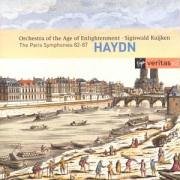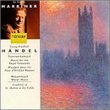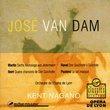| All Artists: Franz Joseph Haydn, Sigiswald Kuijken, Orchestra of the Age of Enlightenment Title: Haydn: Paris Symphonies 82-87 Members Wishing: 0 Total Copies: 0 Label: Virgin Veritas Release Date: 4/11/2000 Genre: Classical Styles: Historical Periods, Classical (c.1770-1830), Symphonies Number of Discs: 2 SwapaCD Credits: 2 UPCs: 724356165922, 724356165953 |
Search - Franz Joseph Haydn, Sigiswald Kuijken, Orchestra of the Age of Enlightenment :: Haydn: Paris Symphonies 82-87
 | Franz Joseph Haydn, Sigiswald Kuijken, Orchestra of the Age of Enlightenment Haydn: Paris Symphonies 82-87 Genre: Classical
|
Larger Image |
CD DetailsSimilarly Requested CDs
|
CD ReviewsThe 'Paris' symphony set to beat! David Dennis | San Mateo, CA | 10/29/2001 (5 out of 5 stars) "One of the rare 'Rosette' winners in the Penguin Guide, Kuijken and the OAE raise the bar for the Paris symphonies, and have set it very high for subsequent interpreters. A perfect disk to convert those who have been wary of period instruments. The OAE proves that the days of shrill-sounding period pieces are gone. These pieces bloom with pace and wit, without losing the right balance between warmth and detail. If you like this recording, also check out Kuijken's set of the 'Channel' symphonies with La Petite Bande (very good, but not quite as good as the OAE) and Kuijken's CD of the 26, 52, and 53 Haydn symphonies with the OAE. An absolute steal at this price." Brilliant Wit and Orchestration Leslie Richford | Selsingen, Lower Saxony | 12/05/2004 (5 out of 5 stars) "Haydn?s ?Paris Symphonies? (1785-1786) were something of a new departure: after all the years of work in Esterhaza with a comparatively small ensemble, Haydn was asked to write symphonies for Europe?s largest orchestras in Paris. He responded with works full of brilliant wit and superb play on orchestra coloring, making grand use of the wind sections. Several of the set have catchy, memorable themes (thus the nicknames ?Bear?, ?Hen? and ?La Reine?), but they also ?live? on the contrast between the forte ?tutti? passages and the piano of individual instrumental groups. The ?Bear?, for example, highlights not only the powerful bass strings in the bear-dance theme, but also the trumpets and horns, whose contribution to the forte passages contrasts ideally with the flutes and oboes in the softer sections. In the ?Hen?, the clucking theme is combined with some delightful string playing with forte attack, while in No. 84 it is again the horns which add that touch of excitement which contrasts with the strings and woodwind. The slow movement of ?La Reine? re-works a popular French folk melody, and here again it is the strings and the horns which produce an alternation of gentle sounds and more explosive tutti with occasional comments from a very feminine sounding flute. In the ?Allegro spiritoso? first movement of No. 86 it is again the trumpets and horns which add their particular color to the energetic drive of the music, emphasized even more by Sigiswald Kuijken?s relentlessly rapid (but no doubt accurate) tempi. And the last movement is really spectacular, hear it for yourself. In many ways, Symphony No. 87 is the climax of the whole set, less popular in tone but brilliant in its orchestration, this time it is the oboes which get centerstage treatment; the menuet and trio is absolutely delightful. The two CDs in this set were recorded in 1989 and 1990 by EMI at London?s prestigious Abbey Road studios and manage to capture every nuance of the music in a most convincing manner. But in the end it is the superb playing of the Orchestra of the Age of Enlightenment under the able leadership of period performance specialist and violinist Sigiswald Kuijken which makes the set more than merely interesting: this is one of the highlights of the Virgin Veritas series and can be warmly recommended to all fans of Haydn?s symphonies and of the music of the late 18th century. This is the kind of music which demonstrates why Haydn is often mentioned in one breath with Mozart. " Terrific Ryan Richards | Midland, MI United States | 04/23/2000 (5 out of 5 stars) "Once again, Kuijken gives a fabulous performance at an unbelievably low price. I'm not sure what I can say about these symphonies: they're solidly interpreted, with very accurate tempi and a wealth of skill from the players. The Orchestra of Enlightenment does a good job of adding the little flourishes to Haydn's music that made him so famous; the music sounds like it's communicating as opposed to just being played. There's a real sense of refinement to these CDs; the elegance of the orchestra's style makes it easy to imagine these symphonies being played (and appreciated) in Paris. As with other Kuijken recordings, the orchestra has that "gutsy" tone I like so well; they sound a lot like the Academy of Ancient Music, if that helps any. Overall, the energy and clarity of sound found on these CDs would be hard to beat at any rate."
|

 Track Listings (12) - Disc #1
Track Listings (12) - Disc #1



